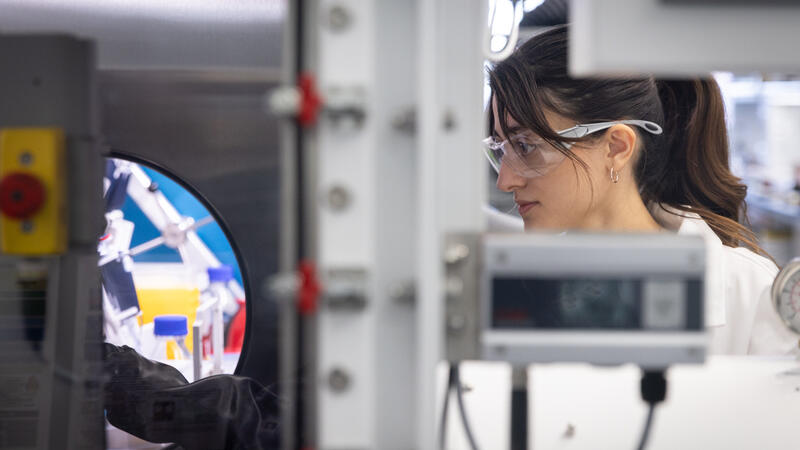News
Autonomous lab accelerates discoveries to harness power of microbes
MADISON – Scientists at the University of Wisconsin–Madison and the Great Lakes Bioenergy Research Center (GLBRC) have found a way to nearly double the efficiency with which Saccharomyces cerevisiae, a commonly used industrial yeast strain, converts plant sugars to biofuel.
Leon Walls knows, loves, and wants to transform the science classroom.
It’s easy to root for Greg Desjarlais, a recent participant in the Research Experience for Undergraduates program offered by the Great Lakes Bioenergy Research Center (GLBRC) at the University of Wisconsin–Madison. He’s unassuming and easy to talk to. He’s a little self-deprecating and he laughs at your jokes.
Do you know your “CoM” (conservation of matter)? How about your “CoE” (conservation of energy)? According to Joyce Parker, researcher at the Great Lakes Bioenergy Research Center (GLBRC), memorizing these scientific principles is easy enough but knowing how they apply to the real world – or to the science of climate change – is a leap that many find challenging.
Ask Christoph Benning what fascinates him about plants and he has an answer at his fingertips: “All life on Earth depends on plants,” he says. “With photosynthesis, they generate the oxygen we breathe and convert sunlight into chemical energy, which we consume as sugars and proteins in our food.”
According to a new, three-year study from the Great Lakes Bioenergy Research Center and Michigan State University (MSU), the use of nitrogen fertilizer on switchgrass crops can produce a sharp increase in emissions of nitrous oxide, a greenhouse gas up to 300 times more harmful than carbon di
In their lab on a 20-acre prairie in Madison, Wisconsin, Xylome scientists are busy tinkering with the yeasts that live in the bellies of wood-boring beetles. A spin-off from the Great Lakes Bioenergy Research Center (GLBRC), Xylome is lowering the cost of making ethanol by creating new yeast strains that more efficiently convert cellulosic biomass to fuel.
Less input, more output. That’s the achievement of a new biomass pretreatment method that could help improve the economics of cellulosic biofuels, the second-generation biofuels made from grasses, wood, and the inedible parts of plants.
As a college sophomore at the University of California–San Diego, Jennifer Reed took a course on building boats and bridges. Though mechanical engineering had long been the “family business” – her father and both her grandfathers were engineers – Reed realized soon enough that hulls and trestles were not her true calling.





